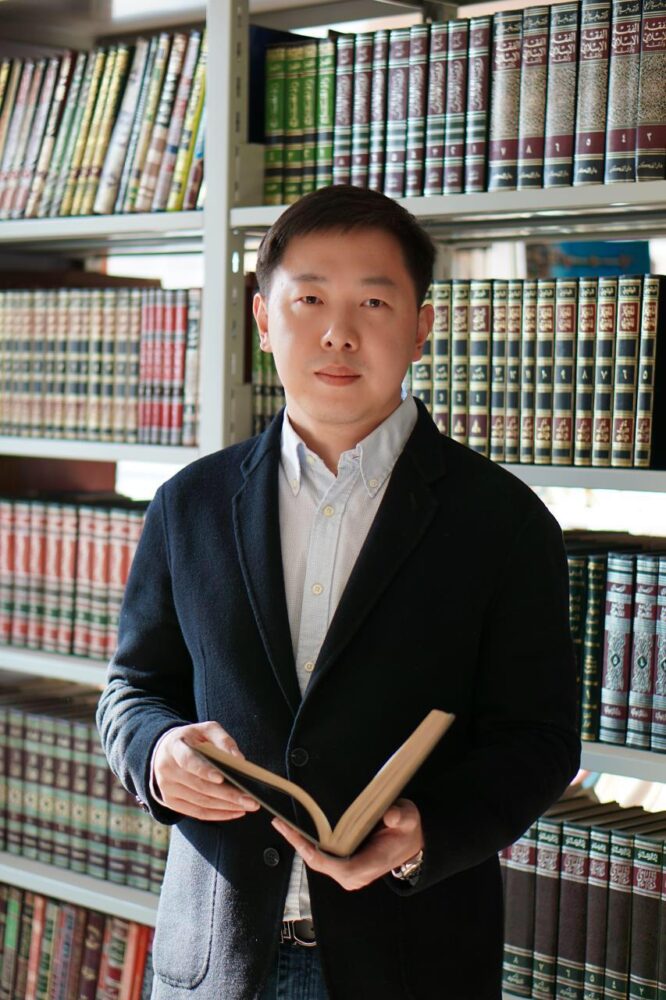By Hazem Samir
Amid rising tensions of US-China relations, the world is heading for more economic and political instability already existing due to Russian-Ukrainian crisis and post-Covid repercussions.
Analysing the fallout of the clash between the two major countries, Egyptian Mail (the weekly edition of The Egyptian Gazette newspaper) interviewed two Chinese political experts to learn about Beijing’s potential actions. In addition, they will also shed light on the Saudi-Iranian deal and the future of Arab-Sino relations.
Recently, US President Joe Biden said that his country is not willing to wage a new cold war with China. Nevertheless, political analysts suggest that the signs of this war began to unfold in 2018.
The experts concerned China-US ties sees that the trade war, launched by the Trump administration in 2018, was the first harbinger of tense relations, and the ensuing period showed also further rifts with no indication of a possible settlement in the near future.
The controversial visit of Nancy Pelosi, US speaker of Congress, to Taiwan and Chinese balloon which had floated over the American territory were the most dramatic chapter of their turbulent relations.
Even though Washington stated that the unmanned airship was for surveillance, China’s Foreign Ministry denied, saying “it was for weather purposes and deviated from its route because of bad weather”. After the US downed the balloon with an advanced missile, Beijing lashed the American action, describing it as an excessive use of force.
Repeatedly, Chinese officials accuse the US of not willing to reach a solution to the sticking points of their talks particularly, Taiwan position which is an integral part of China’s mainland.

In that regard, Chinese senior fellow at the Taihe Institute Einar Tangen said Taiwan is “red line” that cannot be crossed in the Sino-US relationship. This is an unmistakable, clear message repeatedly conveyed to Washington.
“Actually, there is not much that Beijing can do than it has already been done in this issue. The diplomatic Communiqués signed between the two sides recognizes that Taiwan is a part of China,” said Tangen.
Responding to the new cold war with the US, Tangen said that Beijing had followed a tactic of strategic patience in dealing with Washington. Previously, China was waiting and seeing the US moves in order to react. But recently, after finding this approach is not effective, the state changed the strategy using its own political, economic and military tools.
Tangen noted that the meeting between the two countries’ top diplomats in Anchorage, Alaska, in 2021 was the start.
Tangen pointed out that China always chooses a path of win-win co-operation which brings countries together and brings about peace among the peoples, referring to the Saudi-Iranian rapprochement under the auspices of Beijing and the recent proposal of his country to solve the Ukraine crisis.
After being accused of aiding Russia during its war with Ukraine, China countered these allegations through announcing a proposal, declaring itself as a peace broker in this catastrophic dispute lasting for a year.
During his recent official visit to Moscow this week, President Xi said that Beijing’s 12-point paper released last month on how to solve the Ukrainian crisis reflects global views and seeks to neutralise consequences, but acknowledged that the solutions are not easy, according to Reuters.

Xinlu liu, dean of Arab studies at foreign studies college in Beijing, said that the Arab-Sino ties after holding the summit in Riyadh reached new heights of success ushering in a new stage of co-operation.
“Having put their cards on the table, the leaders managed to lay the foundations of the coming stage to surmount all the problems and hurdles facing,” liu added.
“Therefore, the talks went further than the traditional co-operation in energy and trade fields which had been the central focus of their former meetings,” he elaborated.
liu remarked that the Middle East had suffered unresolved conflicts and long-standing upheavals after the Arab Spring in 2011. He pointed out that this agreement would not only establish peace between Saudi Arabia and Iran but also would preserve stability to Yemen, Syria, Lebanon and Iraq.
He also said that there had been many cooperation aspects on which the leaders agreed during Riyadh summit.
“According to the eighth joint framework plan, the summit would work on plans to confront climate change crisis, besides promoting cooperation in fields of technology, agriculture, health, security, IT, AI, and space,” liu added.
Moreover, he noted that the Chinese government would allocate 5 billion Yuan to implement several development projects in Arab countries and the Asian Infrastructure Investment Bank would provide loans to finance infrastructure works. “Chinese side is also ready to contribute to reconstructing the war-stricken countries of Palestine, Yemen, Syria,” he said.
Liu touched upon Egypt’s strategic partnership with China, lauding the national mega projects.
“Egypt is an important country in the Middle East and Africa and now it is on course to stimulate local industry and promote home-made products,” he said.
Liu noted that what has been achieved to reform Egypt’s economy in the last few years under the rule of Egypt’s President Abdel Fattah El Sisi, was a massive success. Making headway in many various aspects will definitely entice foreign investors into pumping their money in Egypt’s market.
“Egypt is a perfect option for Chinese entrepreneurs, and I think the two countries can spur their partnership in manufacture in the near future,” he said.






Discussion about this post